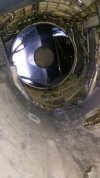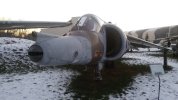Max the Mad Russian
Hands off Ukraine! Feet too
Folks,
Another question: almost every book and article concerning the image of US Naval Aviation contains the noting that the naval aviation world is very competitive in each dimension - from the decklanding scores ("fair", "OK" and so on) and 1v1 training WVR duels to the caliber of the wrist watches or a sportcars in property - the best guy/gal doesn't last long at the top as squadronmates contest him/her on a daily basis. It's clear that childhood doesn't end within military up to retirement but it's still interesting how important this competition is for promotion and earning of all-community respect. Is it mostly about the carrier fighter (or strike fighter) community (and rather for NAs than NFOs) or this is the common thing for helo and VP people as well?
Another question: almost every book and article concerning the image of US Naval Aviation contains the noting that the naval aviation world is very competitive in each dimension - from the decklanding scores ("fair", "OK" and so on) and 1v1 training WVR duels to the caliber of the wrist watches or a sportcars in property - the best guy/gal doesn't last long at the top as squadronmates contest him/her on a daily basis. It's clear that childhood doesn't end within military up to retirement but it's still interesting how important this competition is for promotion and earning of all-community respect. Is it mostly about the carrier fighter (or strike fighter) community (and rather for NAs than NFOs) or this is the common thing for helo and VP people as well?
Last edited:


